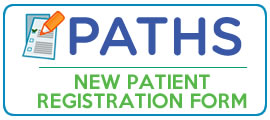What does a psychologist do?
Psychologists provide counseling and therapy to those suffering from emotional, learning, or behavioral problems. Psychologists may work in a variety of settings, including schools, clinics, hospitals, private practice, colleges and universities, corporations, and government. They study behavior, cognitive functioning, and emotions to understand, compare, and explain people’s actions. There are clinical and counseling psychologists. Counseling psychologists study career development and also counsel people regarding career and educational choices. Educational and school psychologists do assessments to help diagnose problems school-aged children may have in regard to learning. There also are cognitive psychologists who study cognition and artificial intelligence.
What might a psychologist do in a workday?
- diagnose and treat psychological problems.
- collect data through interviews, case histories, and observation.
- develop, select, administer, and interpret psychological tests, surveys and experiments.
- counsel individuals, groups, and couples.
- confer with parents, teachers, counselors, administrators, and others.
- follow up to determine the effectiveness of treatment.
- conduct research.
- develop and evaluate mental health programs.
- consult with social, educational, medical, or other agencies.
- write for professional and trade journals or other media.
- teach in colleges and universities.
- evaluate and consult with organizations.
Developing a career as a psychologist?
Clinical and counseling psychologists may specialize in teaching, research, therapy, counseling, rehabilitation, community health, physiology, and psychopharmacology. They may choose to concentrate their work on a specific age group or psychological problem.
- Clinical psychologists evaluate, diagnose, and treat mentally and emotionally disturbed people and are concerned with preventing and treating mental and emotional disorders.
- Educational psychologists design, develop, and evaluate techniques and materials to solve problems in education/training programs.
- School psychologists work with average, gifted, and physically or mentally challenged students.
- Psychometrists or quantitative psychologists develop and implement intelligence, aptitude, achievement, and other tests and analyze results.
- Developmental psychologists investigate emotional, mental, physical, and social growth and development.
- Social psychologists study human relationships to understand individual and group feeling, thought, and behavior.
- Experimental psychologists plan, conduct, and analyze experiments in human and animal learning, thinking, motivation, and perception.
- Industrial-organizational psychologists develop and apply psychological techniques to personnel administration, management, and marketing problems.
How much does a psychologist earn?
- $45,000 - $70,000
How do I become a psychologist?
Students interested in becoming psychologists should prepare by taking challenging high school courses in science, math, and English, including advanced placement courses.
Licensed psychologists must have a doctorate in psychology from an accredited university with training in the area(s) of intended practice. Those who want to specialize in clinical services also must complete two years of supervised postdoctoral experience and one year of internship (or two years of part-time experience). Applicants must pass two written examinations as required by the certifying board. School psychologists must hold at least a master’s degree.
Where else can I learn about becoming a psychologist?
American Psychological Association, Society of Clinical Psychology
750 First St. N.E. / Washington, DC 20002-4242
tel: (800) 374-2721 / web: www.apa.org
American Academy of Clinical Psychology
P. O. Box 700341 / San Antonio, TX 78270-0341
tel: (909) 626-5579 / web: www.aacpsy.org
State License Requirements for Psychologists:
A license is required to practice psychology in the Commonwealth of Virginia. For more information on licensure, applications, and forms, visit www.dhp.virginia.gov/Psychology.
Virginia Board of Psychology
Perimeter Center
9960 Mayland Drive, Suite 300 / Henrico, Virginia 23233-1463
tel: (804) 367-4697 / Email: psy@dhp.virginia.gov
Educational Institutions in Virginia for Social Work:
- American Public University
- Argosy University
- Averett University
- Bluefield College
- Bridgewater College
- The College of William & Mary
- Christopher Newport University
- Eastern Mennonite University
- Eastern Virginia Medical School
- Emory & Henry College
- Ferrum College
- Hampden-Sydney College
- Hampton University
- Hollins University
- Institute for the Psychological Sciences
- James Madison University
- Jefferson College of Health Sciences
- Liberty University
- Longwood University
- Lynchburg College
- Mary Baldwin College
- Marymount University
- Norfolk State University
- Northern Virginia Community College - Alexandria Campus
- Old Dominion University
- Radford University
- Randolph College
- Randolph-Macon College
- Regent University
- Roanoke College
- Saint Leo University
- Shenandoah University
- Southwest Virginia Community College
- Sweet Briar College
- University of Mary Washington
- University of Richmond
- University of Virginia
- University of Virginia at Wise
- Virginia Commonwealth University
- Virginia Intermont College
- Virginia Military Institute
- Virginia State University
- Virginia Tech
- Virginia Union University
- Virginia Wesleyan College
- Washington and Lee University
- University of Phoenix
- Walden University


